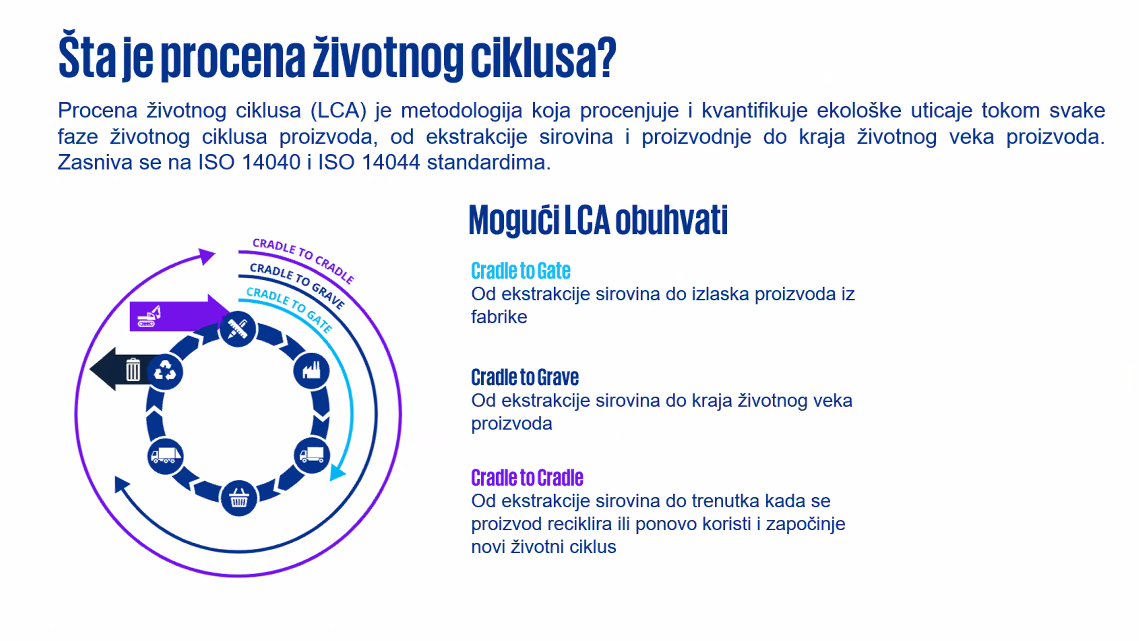What is the environmental footprint of the products we use every day? What methods can we apply to calculate, understand, and reduce it? These and many other questions were the focus of the latest ESG webinar organized by the KPMG ESG & Sustainability Consulting team, held on March 26.
The first part of the webinar was dedicated to Life Cycle Assessment (LCA), while the second part covered the new Ecodesign for Sustainable Products Regulation which were presented in detail by experts Nina Mihajlović and Marijana Marjanović. Through real examples, participants had the opportunity to learn how emissions differ at the organizational level versus the product level, what are the key steps in performing an LCA analysis and which standards must be followed, what is included in the creation of an Environmental Product Declaration (EPD), how product carbon footprint calculation works in practice and why the digital product passport has become one of the key tools in the sustainable value chain.
The great interest shown highlights how relevant these topics are, particularly in the context of increasingly strict EU regulations that are becoming a reality for domestic companies as well.
This webinar marked the end of the first series of online ESG seminars.



